
- This event has passed.
National New Hampshire Day
September 7, 2024
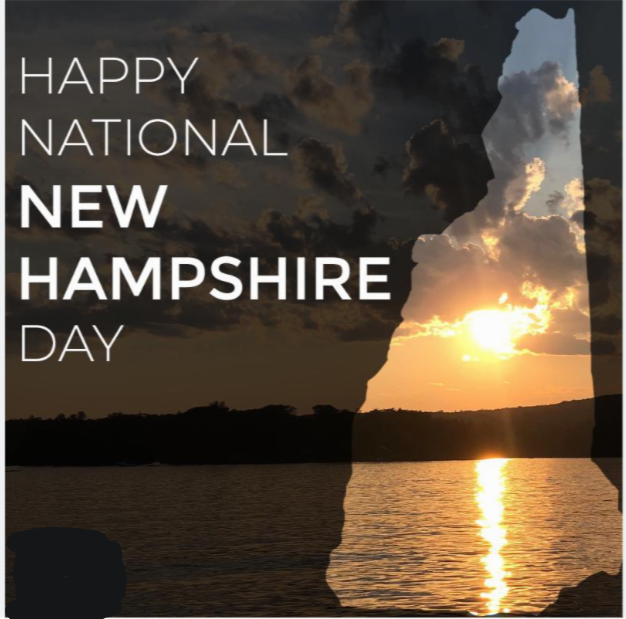
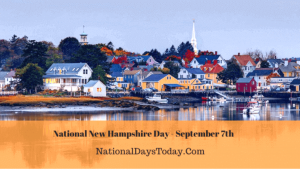
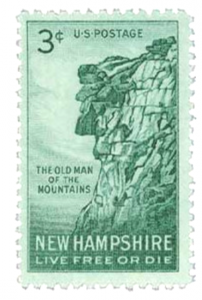
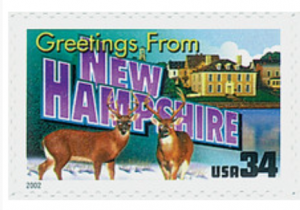
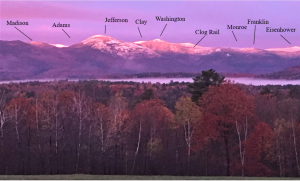
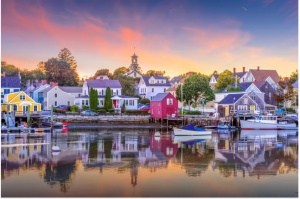
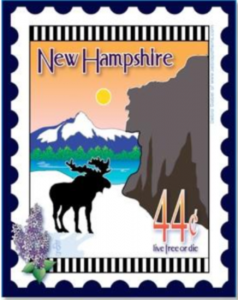
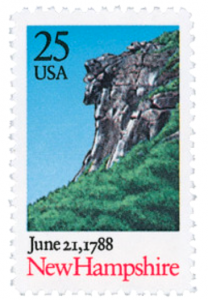
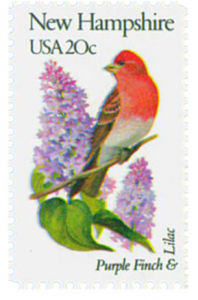
National New Hampshire Day on September 7 recognizes New Hampshire becoming the ninth state to join the Union and celebrates all things New Hampshire.
New Hampshire Facts:
- Nickname: Granite State.
- Statehood: 1788 as the 9th state in the Union.
- Population (as of 2022): 1,395,000.
- Capital: Concord.
- Biggest City: Manchester.
- Abbreviation: NH.
- State bird: Purple Finch.
- State flower: Purple Lilac.
- State fruit: Pumpkin.
- State vegetable: White Potato.
- State sport: Skiing.
- State mammal: White-tailed deer.
- State insect: Ladybug.
- Fifth smallest state in the USA.
INTERESTING FACTS ABOUT NEW HAMPSHIRE
- The windiest mountain
- Mt. Washington recorded a wind speed of 230 miles per hour on April 12, 1934.
- Seat belts are mandatory ONLY for adults.
- It’s the only state in the U.S.A. where seat belts are not mandatory.
- The coastline is short.
- Only 18 miles long. The shortest of the states with an ocean coastline.
- NH has the White Mountains with its tallest peaks in the Presidential Range. Mt. Washington is the highest one, which has dynamic and hazardous weather conditions year-round. One should check reliable weather sources before hiking to the top
- First in the Nation (FITN): NH often holds its primaries before any other state.
- Early on during election time, the country focuses its attention on New Hampshire.
- Another phrase often attributed to New Hampshire: “As New Hampshire goes, so goes the nation.”
- Impressive fall foliage bring visitors every autumn.
- Many historical schools such as St. Paul’s School, Kimball Union Academy, and Phillips Exeter Academy are located in the state.
- “The Granite State”
- That’s due to the number of granite quarries present in the state.
- Some writers also call NH the Queen State –
-
- “Queen by right of her natural beauty;
- queen by her native hardy spirit;
- queen by her diversified industry;
- queen by reason of her motherhood of great men.
- She is enthroned on hills of granite, diademed with sparkling waters and sceptered with industry.”
-
- “Mother of Rivers”
- Five of the great streams of New England originate in its granite hills.
- The Connecticut River rises in the northern part, and for nearly one hundred miles of its winding course hems the shores of the state with a “broad seam of silver.”
- The Pemigewasset River starts in the Profile Lake in the Franconia mountains and joins the Winnipesaukee at Franklin to form the Merrimack, which at one time turned more spindles than any other river in the world.
- The Cocheco and Salmon Falls rivers join at Dover to form the Piscataqua.
- In addition, two of the principal rivers of Maine, the Androscoggin and the Saco, have their beginnings in northern New Hampshire.
- New Hampshire has 1300 lakes or ponds and 40,000 miles of rivers and streams which provide year round fishing and recreation in scenic surroundings, as well as power for the State’s many industries.
- Five of the great streams of New England originate in its granite hills.
- Some movies filmed here:
- “Our Town” (1940)
- “A Separate Peace” (1972),
- “The Europeans” (1979)
- “On Golden Pond” (1981),
- “Octopussy” (1983)
- “Once Around” (1991),
- “The Good Son” (1993)
- “The War Room” (1993)
- “Jumanji” (1995), specifically in Keene.
- “Before I Sleep” (2013)
- “Hedgehod” (2017), parts in Portsmouth
- Some books set here:
- “Our Town” (1938) by Thornton Wilder
- “Peyton Place” (1956) by Grace Metalious
- “A Separate Peace”(1959) by John Knowles
- “The Hotel New Hampshire” (1981) by John Irving
- “A Prayer for Owen Meany” (1989) by John Irving
- “The Weight of Water”(1997) by Anita Shreve
- “Nineteen Minutes” (2008) by Jodi Picoult
Some NH History
- In 1623, early historians record that, under the authority of an English land-grant, Captain John Mason, in conjunction with several others, sent David Thomson, a Scotsman, and Edward and Thomas Hilton, fish-merchants of London, with a number of other people in two divisions to establish a fishing colony in what is now New Hampshire, at the mouth of the Piscataqua River.
- One of these divisions, under Thomson, settled near the river’s mouth at a place they called Little Harbor or “Pannaway,” now the town of Rye, where they erected salt-drying fish racks and a “factory” or stone house. The other division under the Hilton brothers set up their fishing stages on a neck of land eight miles above, which they called Northam, afterwards named Dover.
- In 1719, Scotch-Irish settlers brought the first potatoes to North America. The settlers planted them in the settlement of Nutfield, now known as Londonderry.
- New Hampshire played a significant role in US History as one of the original thirteen colonies. It supplied troops and supplies during the Revolutionary War and was an important center for shipbuilding and textile production in the 19th century.
- NH’s economic and social life had much to do with sawmills, shipyards, and merchants’ warehouses.
- Villages and town centers quickly sprung up in the region.
- Wealthy merchants invested their capital in trade and land speculation and there also developed a class of laborers, mariners, and slaves.
- Before Paul Revere had his famous ride, he first made another all-important journey. In 1774, Revere rode the 55 miles from Boston to Portsmouth to warn the citizens of an impending seizure of Fort William and Mary. The village stormed the fort and took control of the ammunition before the British arrived.
- December 14, 1774: The only battle fought in New Hampshire was the raid on Fort William and Mary,
- The battle was fought with gunpowder, small arms, and cannon for two nights.
- According to legend, the gunpowder was later used at the Battle of Bunker Hill after several NH patriots stored the powder in their homes until it was transported elsewhere for use in revolutionary duties.
- During the raid, the British soldiers fired upon the revolutionaries with cannons and muskets. No casualties. However, those shots were some of the first ones fired in the American Revolutionary War.
- On January 5, 1776, New Hampshire became the first colony to declare independence from Great Britain, almost six months before the Declaration of Independence was signed by the Continental Congress.
- NH formed a government later and had its own written laws before joining the American union.
- New Hampshire became the first state to established an independent government.
- The state also created the first written constitution.
- NH’s notable navy officer and “Father of the American Navy,” John Paul Jones, uttered“I have not yet begun to fight” in response for his surrender at the Battle of Flamborough Head in 1779.
- June 21, 1788:
- New Hampshire ratified the U.S. Constitution.
- New Hampshire became the ninth state to join the Union.
- July 31, 1809: Origin of NH’s State Motto: “Live Free or Die.”
- New Hampshire’s most famous soldier of the American Revolutionary War, General John Stark wrote a toast in honor of the anniversary of the Battle of Bennington 1777.
- Stark’s full quote reads:“Live free or die, death is not the greatest of evils.”
- While he may not be the first to share the sentiment to live free or die, his toast summed up the country’s dedication to independence.
- In 1828, when ownership changed hands at the Cocheco Manufacturing Company, the new owner reduced the wages of only the female textile mill workers.
- On top of already difficult work and long days, the owners placed even stricter requirements on its employees.
- Frustrated, on December 30th, about 400 of the female workers walked out, which became the nation’s first all-female strike.
- However, the strike failed and resulted in many of the striking workers returning to work at even lower wages.

